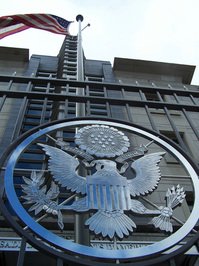 Cook County State’s Attorney, Kim Foxx, has announced that her office will stop prosecuting cases involving people charged with driving on a suspended or revoked driver’s license based on a financial reason, such as failure to pay parking tickets. tolls or child support. The decision to do this is based on a lack of funding for the State’s Attorney’s Office which has left the office with not enough prosecutors to handle the criminal prosecutions in Cook County. This does not mean that these cases will go away in Cook County. Individual towns, cities and villages will be allowed to prosecute these cases themselves. This could mean a rise in the number of cases being charged as Municipal Violations. Each city, town, and village can set up their own administrative process which involves Hearing Officers and attorneys hired by the towns and Villages, that collect fines for violations. The standard of proof in a Municipal Ordinance Violation case is much lower than in a criminal case and the potential punishment is a monetary fine and not jail time.
Cook County State’s Attorney, Kim Foxx, has announced that her office will stop prosecuting cases involving people charged with driving on a suspended or revoked driver’s license based on a financial reason, such as failure to pay parking tickets. tolls or child support. The decision to do this is based on a lack of funding for the State’s Attorney’s Office which has left the office with not enough prosecutors to handle the criminal prosecutions in Cook County. This does not mean that these cases will go away in Cook County. Individual towns, cities and villages will be allowed to prosecute these cases themselves. This could mean a rise in the number of cases being charged as Municipal Violations. Each city, town, and village can set up their own administrative process which involves Hearing Officers and attorneys hired by the towns and Villages, that collect fines for violations. The standard of proof in a Municipal Ordinance Violation case is much lower than in a criminal case and the potential punishment is a monetary fine and not jail time.
Another change announced by the Cook County State’s Attorney’s Office has to do with charging people involved in serious car crashes while their licenses were suspended or revoked for financial reasons. Currently, if someone is involved in a serious car accident and their license is suspended, they could be charged with a felony if they have one previous conviction for driving with a suspended license. The Cook County State’s Attorney’s Office announced that they will not charge a driver with a felony unless they have at least five previous convictions for driving with a suspended or revoked license. This only applies if the suspension or revocation is based on a financial reason.
The Cook County State’s Attorney’s Office points out that the office is operating with 30% less funding than 10 years ago. The decision to stop prosecuting suspended and revoked license cases based on financial reasons will help free up some prosecutors to help prosecute more serious criminal cases. There’s at least 2 Courtrooms at the Daley Center that handle cases like this. By declining to prosecute cases like this, the prosecutors assigned to those courtrooms will be reassigned to other courtrooms and courthouses.
 Chicago Criminal Lawyer Blog
Chicago Criminal Lawyer Blog


 On June 12, we reported that Illinois Governor, Bruce Rauner, signed a Bail Reform bill into law. The new law seeks to make changes to the bail process in Illinois by trying to move away from the requirement of posting cash as a way to avoid keeping people in jail who are poor and lack the financial means to post the cash needed to be released from county jail on minor criminal offenses. The new law requires that if the Court sets a cash bond at an initial Bond Hearing, and the defendant is unable to post the cash required, a second Bond Hearing must take place within 7 days of the arrest. The purpose of this second bond hearing is to re-examine whether there are alternatives available to the requirement that cash be posted. This second Bond Hearing is a further step towards moving away from making posting cash the main way to be released from jail pending resolution of a criminal case.
On June 12, we reported that Illinois Governor, Bruce Rauner, signed a Bail Reform bill into law. The new law seeks to make changes to the bail process in Illinois by trying to move away from the requirement of posting cash as a way to avoid keeping people in jail who are poor and lack the financial means to post the cash needed to be released from county jail on minor criminal offenses. The new law requires that if the Court sets a cash bond at an initial Bond Hearing, and the defendant is unable to post the cash required, a second Bond Hearing must take place within 7 days of the arrest. The purpose of this second bond hearing is to re-examine whether there are alternatives available to the requirement that cash be posted. This second Bond Hearing is a further step towards moving away from making posting cash the main way to be released from jail pending resolution of a criminal case. On Friday, Illinois Governor, Bruce Rauner, signed a new bill into law which takes affirmative steps to try to solve the bail problem in Illinois. The bill, called the Bail Reform Act, makes some significant changes to the bail process in Illinois and seeks to deal with the problems faced by people who are charged with minor crimes who are stuck in jail because they are unable to come up with the low amount of cash to post bail so they can be released.
On Friday, Illinois Governor, Bruce Rauner, signed a new bill into law which takes affirmative steps to try to solve the bail problem in Illinois. The bill, called the Bail Reform Act, makes some significant changes to the bail process in Illinois and seeks to deal with the problems faced by people who are charged with minor crimes who are stuck in jail because they are unable to come up with the low amount of cash to post bail so they can be released. Over the weekend I read an article about a 60 minutes episode about Cook County Jail and Sheriff Tom Dart. Cook County Sheriff Tom Dart is in charge of running Cook County Jail, the largest single-site jail in the United States. After I finished reading the article, I was struck by some of the information contained in the article and wanted to pass along some of the things that I learned. We are used to seeing news stories about inmates who are released from prison after spending years behind bars for a crime they did not commit. We become conditioned to believe that this is all that is wrong with our criminal justice system. But this article about Cook County jail is much more disturbing because it represents a systematic injustice, legal and moral, with our criminal justice system.
Over the weekend I read an article about a 60 minutes episode about Cook County Jail and Sheriff Tom Dart. Cook County Sheriff Tom Dart is in charge of running Cook County Jail, the largest single-site jail in the United States. After I finished reading the article, I was struck by some of the information contained in the article and wanted to pass along some of the things that I learned. We are used to seeing news stories about inmates who are released from prison after spending years behind bars for a crime they did not commit. We become conditioned to believe that this is all that is wrong with our criminal justice system. But this article about Cook County jail is much more disturbing because it represents a systematic injustice, legal and moral, with our criminal justice system. Many of the people that I have represented in my 27 years of being a criminal defense lawyer have no criminal record and have little, or no experience, with the criminal justice system. For many people, the thought of facing criminal charges can be a daunting and scary experience. In addition to providing legal services in court, one of my main responsibilities as a criminal defense lawyer is to explain the legal process to my clients and to make sure they fully understand what is happening, and what will be happening in the future.
Many of the people that I have represented in my 27 years of being a criminal defense lawyer have no criminal record and have little, or no experience, with the criminal justice system. For many people, the thought of facing criminal charges can be a daunting and scary experience. In addition to providing legal services in court, one of my main responsibilities as a criminal defense lawyer is to explain the legal process to my clients and to make sure they fully understand what is happening, and what will be happening in the future.
 I woke up to multiple news reports this morning that former National Security advisor, Michael Flynn, has offered to cooperate with Federal Investigators in return for a grant of immunity. I was watching news coverage and notice that the media is not reporting all of the various factors and steps that have to be taken in order for this to happen. The reporting is very simple. However, the topic is certainly more complex than what is being reported. I want to focus on a couple of things that the media is not talking about.
I woke up to multiple news reports this morning that former National Security advisor, Michael Flynn, has offered to cooperate with Federal Investigators in return for a grant of immunity. I was watching news coverage and notice that the media is not reporting all of the various factors and steps that have to be taken in order for this to happen. The reporting is very simple. However, the topic is certainly more complex than what is being reported. I want to focus on a couple of things that the media is not talking about.